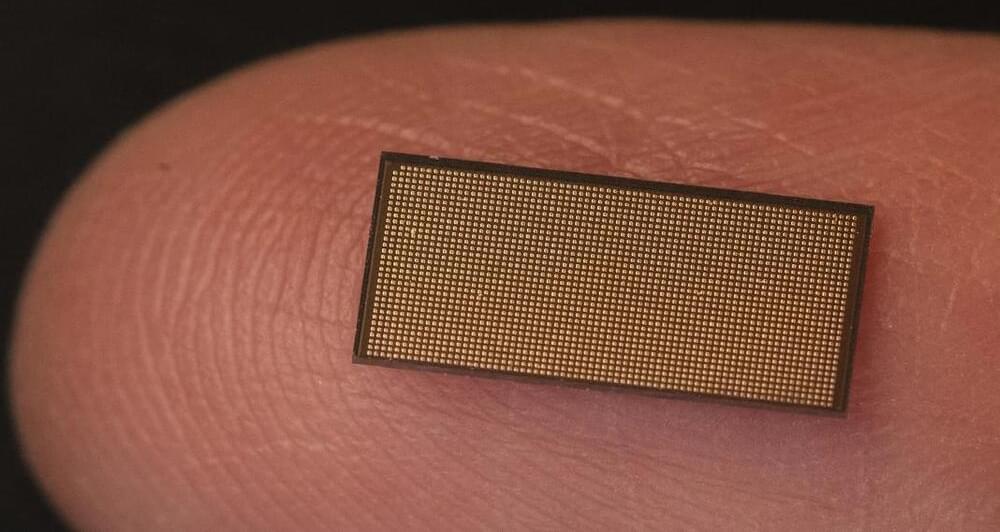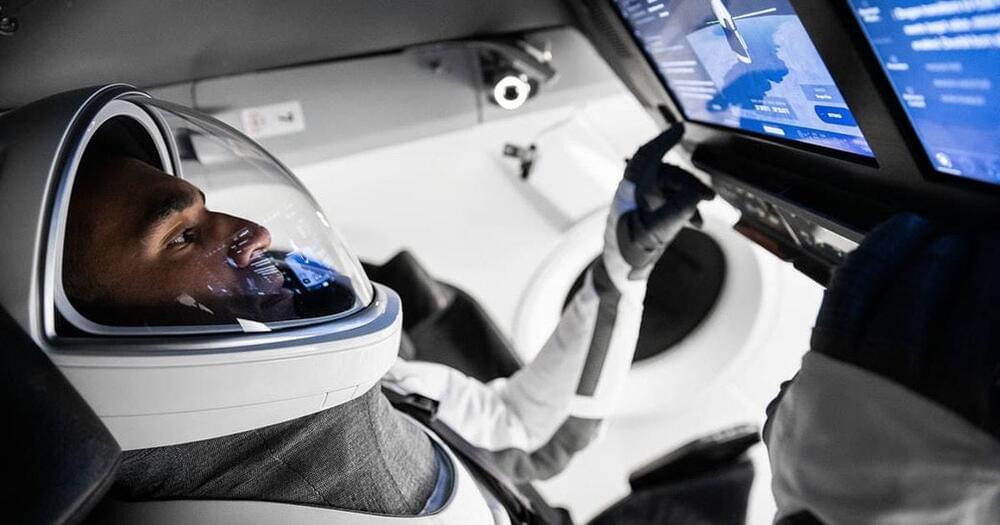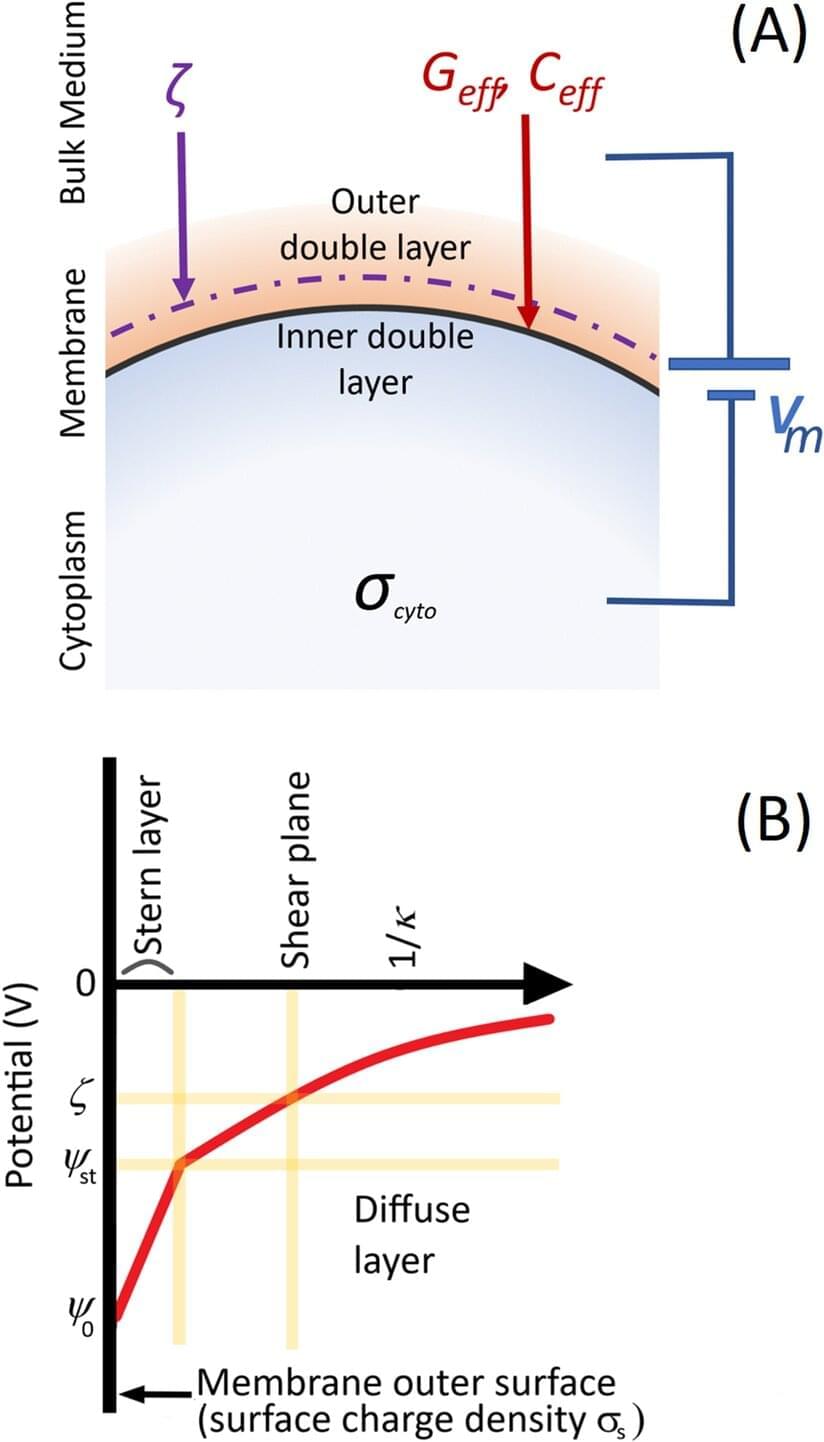The Loihi 2 chip doesn’t just significantly boost the number of neurons from its first iteration, it also greatly expands their functionality.



Interestingly, the nuclear protein histone H4 was detected, which is reminiscent of the retention of nuclear components in the remains (Fig. 2c). Search against the database of all mammalian species identified other nuclear proteins, such as histones, histone chaperones, proteins implicated in mRNA processing or transport and nuclear membrane proteins (Supplementary Table S2). In addition, we identified two well-characterised epigenetic modifications on histone molecules, methylation of H3K79 and H4K20 (Supplementary Fig. S2A and B), which are involved in transcriptional regulation and genome maintenance18,19. Our high-sensitive proteomic analysis suggests that the remains retain nuclear components.
These findings motivated us to seek cell nuclei from the muscle remains. Although DAPI-positive and autofluorescence-negative nucleus-like structures were rarely found (Supplementary Figs S3 and S4), we chose the autofluorescence-negative structures for the subsequent live-cell imaging of nuclear-transferred embryos since autofluorescence disturbs accurate tracing of fluorescent-tagged proteins. In total, 88 nucleus-like structures were collected from 273.5 mg mammoth tissue in 5 independent experiments (Supplementary Table S7). Our immunostaining protocol developed for single suspended cells from remains (Supplementary Fig. S5) revealed that these structures were positive for lamin B2 and histone H3, both of which were identified by mass spectrometry (Fig. 3a and Supplementary Fig. S6), suggesting that cell nuclei are, at least partially, sustained even in over a 28,000 year period.
Whether these different organisations want to land astronauts, install a human outpost or mine minerals and make rocket fuel on the moon, it still lacks an exceptional and important asset– A lunar radio Telescope. Why? Because this development will be uniquely poised to answer one of humanity’s greatest questions: What is our cosmic origin?
–
Subscribe for more videos ►https://www.youtube.com/c/InsaneCuriosity?sub_confirmation=1?
Business Enquiries ► [email protected].
–
All the lunar missions that are being planned along with all other missions that different organizations want to accomplish, will be of no use if we don’t seek answers to fundamental questions like “what is the universe made up of? What are we made up of?” And a telescope on the far side of the moon will help us answer these important questions!! So let’s take a look at why this is important and what NASA is planning to do about it.
As mentioned earlier the universe constantly beams its history to us. For instance, the information of what happened long ago in the universe is contained in the long length radio waves that are present everywhere throughout the universe and most likely hold the details about how the first black holes and stars were formed. But there’s a problem. Our noisy radio signals and our atmosphere block these signals from coming to the earth and we can’t read them. The far side of the moon is the best place in the inner solar system to monitor these low-frequency radio waves and help us in detecting certain faint ‘fingerprints’ that the big bang left on the cosmos. The problem with our earth bound telescopes is that they encounter too much interference for electromagnetic pollution caused by human activity, whether it is short-wave broadcasting or maritime communication. On the top of that our ionosphere blocks the longest wavelengths from reaching our earth-based telescopes in the first place. We need these signals to understand and learn whether our universe inflated rapidly in the first trillionth of a trillionth of second after the big bang.
This is the reason why NASA is in the early stages of planning what it would take to build an automated research telescope on the dark side of the moon. One of the most ambitious proposals is to build the Lunar Crater radio telescope or the LCRT
–
“If You happen to see any content that is yours, and we didn’t give credit in the right manner please let us know at [email protected] and we will correct it immediately”
“Some of our visual content is under an Attribution-ShareAlike license. (https://creativecommons.org/licenses/) in its different versions such as 1.0, 2.0, 30 and 4.0 – permitting commercial sharing with attribution given in each picture accordingly in the video.”
Credits: Ron Miller.
Credits: Mark A. Garlick / MarkGarlick.com.
Credits: NASA/Shutterstock/Storyblocks/Elon Musk/SpaceX/ESA/ESO
Credits: Flickr.
#InsaneCuriosity #Telescopes #Moon
India is entering the space industry.
India is opening doors for private companies to enter space.
PM Narendra Modi launched the Indian Space Association that will serve as a “single-window” for matters of space technology.
What is India’s game plan to win the global space race?
Palki Sharma tells you.
#India #PMModi #IndianSpaceAssociation.
About Channel:
WION-The World is One News, examines global issues with in-depth analysis. We provide much more than the news of the day. Our aim to empower people to explore their world. With our Global headquarters in New Delhi, we bring you news on the hour, by the hour. We deliver information that is not biased. We are journalists who are neutral to the core and non-partisan when it comes to the politics of the world. People are tired of biased reportage and we stand for a globalised united world. So for us the World is truly One.

SpaceX’s first all-civilian mission to orbit was a success. Here’s what comes next.
Last week, SpaceflightNow reported that NASA’s upcoming crewed mission to the International Space Station would use a new Crew Dragon capsule. The mission, set for October 30 will feature a capsule named Endurance by the four-person crew. The news means that the crew won’t have to wait for SpaceX to refurbish one of its other two capsules.
That means the crew will take off less than two months after the Inspiration4 mission, the first all-civilian mission to orbit. On September 30 NASA announced that Crew-3 would launch no earlier than 2:43 a.m. Eastern time on Saturday, October 30. It will be SpaceX’s fourth crewed mission for NASA and its fifth crewed mission overall.
The plans show SpaceX is not planning to stand still. The Inspiration4 mission brought newfound attention to the company, thanks in part to a five-part Netflix documentary.

Astronomers have confirmed the existence of a gigantic comet — and they say it’s headed towards Earth.
The comet was discovered by University of Pennsylvania astronomers Pedro Bernadinelli and Gary Bernstein, according to The Daily Beast. The pair initially found evidence of a 60 to 100 mile wide comet seven years ago and have finally released a paper confirming it late last month in the journal The Astrophysical Journal Letters.
Dubbed the Bernardinelli-Bernstein (BB) comet, the astronomers also described it as the “nearly spherical cow of comets” in the paper.

BEIJING, Oct 11 (Reuters) — China’s military said on Monday it had carried out beach landing and assault drills in the province directly across the sea from Taiwan, though it did not link the exercises to current tensions with Taipei.
Democratically ruled Taiwan, claimed by China as its own territory, has complained of stepped-up military and political pressure from Beijing to force it to accept Chinese rule, including massed air force incursions into Taiwan’s air defence identification zone. read more
The official People’s Liberation Army Daily newspaper, in a brief report on its Weibo microblogging account, said the drills had been carried out “in recent days” in the southern part of Fujian province.
Circa 2017
Call it worm power.
Takaaki Hirotsu is trying to harness the power of the nematode worm — a tiny, transparent roundworm that lives in soil or water — to detect all forms of cancer at their earliest stages.

Today, Microsoft announced that Microsoft Translator, its AI-powered text translation service, now supports more than 100 different languages and dialects. With the addition of 12 new languages including Georgian, Macedonian, Tibetan, and Uyghur, Microsoft claims that Translator can now make text and information in documents accessible to 5.66 billion people worldwide.
Its Translator isn’t the first to support more than 100 languages — Google Translate reached that milestone first in February 2016. (Amazon Translate only supports 71.) But Microsoft says that the new languages are underpinned by unique advances in AI and will be available in the Translator apps, Office, and Translator for Bing, as well as Azure Cognitive Services Translator and Azure Cognitive Services Speech.
“One hundred languages is a good milestone for us to achieve our ambition for everyone to be able to communicate regardless of the language they speak,” Microsoft Azure AI chief technology officer Xuedong Huang said in a statement. “We can leverage [commonalities between languages] and use that … to improve whole language famil[ies].”

In a paper published in Scientific Reports, academics at the University of Surrey have discovered that biological cells generate an electric field voltage that appears outside and not just within, meaning each cell acts as a tiny electrode. Since this voltage impacts how cells interact with their environment, including the way cells stick to one another, this has significant potential implications for future medical treatments.
Since the 1790s, scientists have known that electricity plays a role in the function of life, with the discovery in the 1940s that every cell contains a voltage that controls many of its functions. This is particularly the case in muscle and nerve cells but has also been shown to play an important role in diseases such as cancer.
However, until now, this voltage has always been understood to be contained within the cell. Through intricate experiments with red blood cells, the Surrey-led research team has shown that the voltage appears outside the cell as well. This means that cells effectively act as tiny transmitters, electrically changing the environment around them. Similar results in other types of biological cells could play a significant role in determining new types of medical treatment.